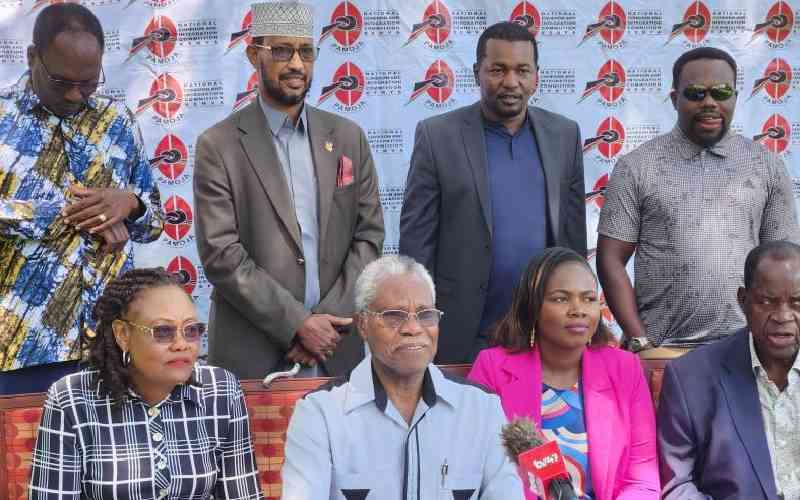Kenya’s politics has long been defined by ethnicity, its loyalties, its mobilisation power, and its devastating potential for conflict.
We know how quickly political competition can mutate into ethnic confrontation and violence. From the clashes of the 1990s to the post-election violence of 2007/08 and periodic tensions afterwards, the scars remain visible across the country.
Follow The Standard
channel
on WhatsApp
Yet even with these ethnic fault lines, Kenya has largely resisted falling into the far more dangerous trap of sectarian (religious) conflict. This resilience has not been accidental. It is the result of intentional leadership by visionary religious actors and institutions such as the Interreligious Council of Kenya (IRCK), the National Muslim–Christian Forum, and countless grassroots clerics who have rejected extremist narratives and upheld the dignity of every Kenyan. Despite deliberate efforts by groups like Al-Shabaab to ignite Christian–Muslim hostility, Kenyans have consistently refused to turn neighbours into enemies. But that stability is now facing an unprecedented risk. The recent viral video of a Christian cleric making inflammatory remarks has stirred anger within Muslim communities.
While this may seem like an isolated incident, it lands at a moment of political vulnerability. Kenya is two years away from the next general election, a period when politicians historically begin courting support by amplifying the deepest identities of their followers.
If religion enters the political battlefield for the first time, the consequences could be more severe than anything Kenya has experienced under ethnic mobilisation. Unlike ethnicity, where political grievances, regional ties, tribal and clan structures are visible and negotiable, religion strikes at existential identity. Sectarian conflict is rooted in faith, belief, and perceived divine truth and this is non-negotiable. Moreover, it is linked to global religious sentiments and ideological networks. Once ignited, sectarian flames are notoriously hard to extinguish. The stakes extend beyond politics. It threatens Kenya’s social fabric, economy, and national stability. Kenya’s peace infrastructure—from NCIC to IRCK to local peace committees—is designed primarily to manage ethno-political conflict. Introducing religious antagonism would create a multidimensional crisis requiring entirely new capacity, legislation, and mediation models.
It would erode national cohesion faster than ethnic conflict. Ethnic tensions usually flare around elections. Religious tensions cut across every election cycle, every institution, and every community space—including schools, markets, workplaces, and intermarriages.
It would amplify external security threats. Extremist groups thrive where sectarian divisions widen. Al-Shabaab’s propaganda machine has long sought a Christian–Muslim confrontation in Kenya. Any clerical incitement—even if political—hands them ideological ammunition. It would polarise urban centres, cities like Nairobi, Mombasa, Isiolo, Nakuru, and Eldoret are religiously diverse. Sectarian tension in these spaces could lead to rapid urban conflict, vigilantism, and targeted attacks. It would create political incentives for further radicalisation. Once politicians realise that religious fear can win votes, they may escalate rhetoric, weaponise the pulpit, and align with clerics who can mobilise congregations.
The National Cohesion and Integration Commission’s swift summons to the cleric is not simply a legal procedure—it is preventive peacebuilding. Hate speech and incitement—whether ethnic or religious—will not be tolerated.
Clergy and Sheikhs must always remember that they are moral leaders whose words carry power and therefore carry responsibility. Kenyans must not allow sectarian identity to become a campaign too and that religious institutions must remain sanctuaries of peace, not political platforms. With elections just two years away, preventive action is urgent.
The writer is the director for peacebuilding on cohesion at NCIC
Follow The Standard
channel
on WhatsApp
By Guyo Liban Dadacha
